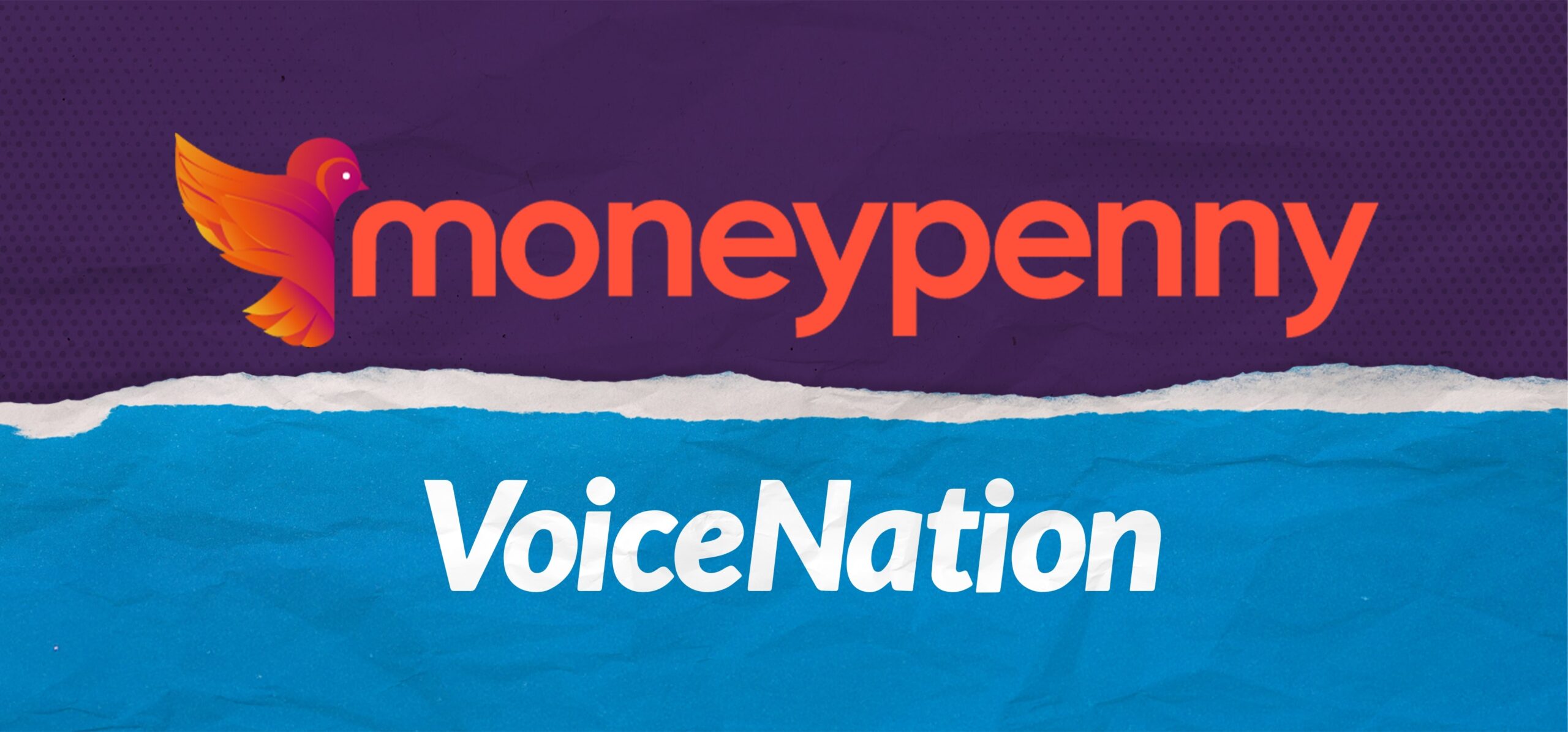The world has shifted towards a much more flexible working model over the last couple of years, with more industries now offering employees the choice to work from home or a remote location.
Interestingly, over half of Americans (52%) believe they’re more productive this way, and 43% consider flexibility a main reason to remain loyal to an employer – which should be a high priority for businesses considering 93% of Americans would consider changing jobs if the opportunity arose.
Changes to the way we work mean businesses are having to adapt, with Statista data revealing that 72% of US companies are investing more time and money into tools for virtual collaboration, 70% are strengthening IT infrastructure for improved virtual connectivity, and 64% are providing training to managers to handle virtual workforces – while just under half (45%) are moving to an unassigned office seating model.
But which industries are best-adapting, and which are struggling to keep up? Analyzing the total number of flexible jobs within each of America’s top ten industries, across the ten largest states by population, we can reveal the sectors that are best (and worst) for flexibility.
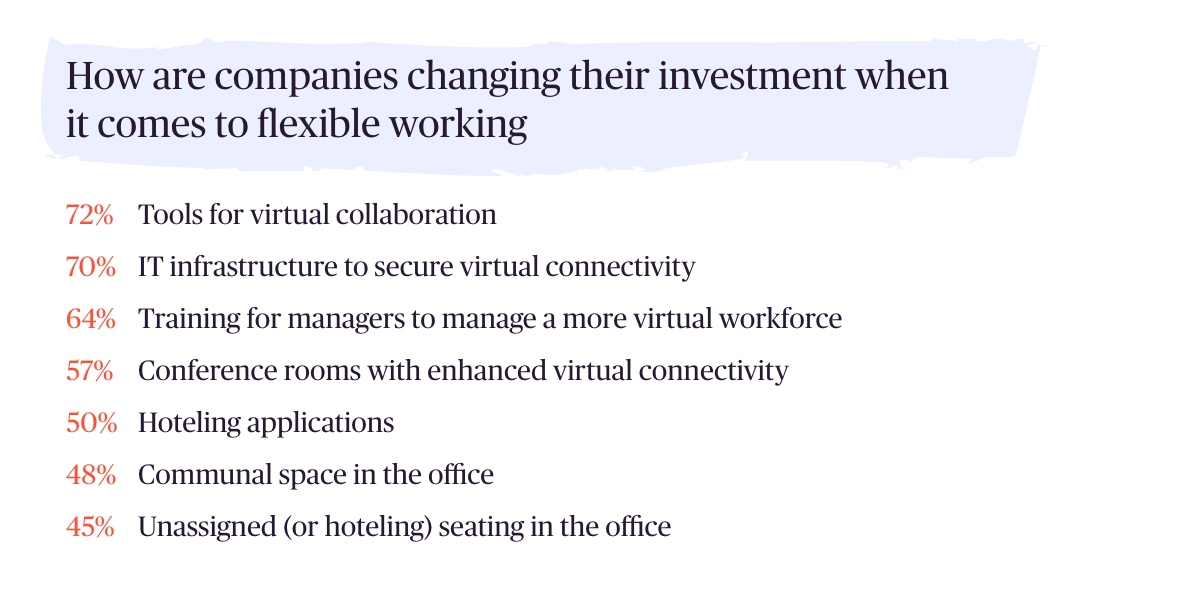
The best and worst US industries for flexible working
As the world moves towards a more flexible working model, which industries across the US are adapting best and worst?
The best US industries for flexible working
Interestingly, the industry in America that offers the most flexibility to employees is IT, with 14% of working hours managed remotely – which might come as a surprise to some, considering the hands-on nature of managing computer hardware. State-wise, IT also tops the charts in California (17%), Georgia (16%), Illinois (16%), and North Carolina (15%).
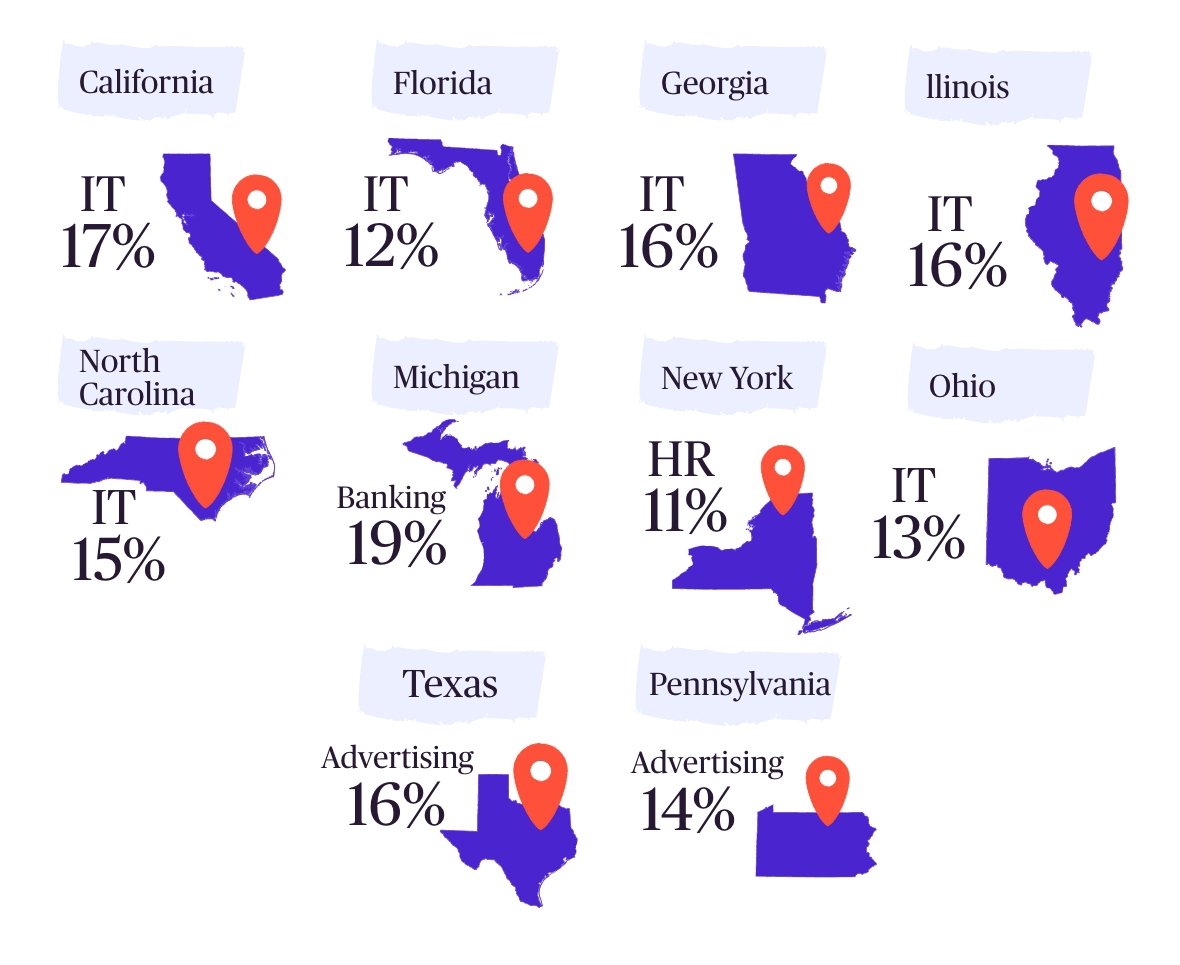
Not far behind, the advertising (13%) and marketing (12%) industries are ranked second and third in the US for flexible working, respectively, with advertising ranking top in Pennsylvania (14%) and Texas (16%). Despite the industry often thriving on collaboration and teamwork to spark creativity, 48% feel remote working improves efficiency.
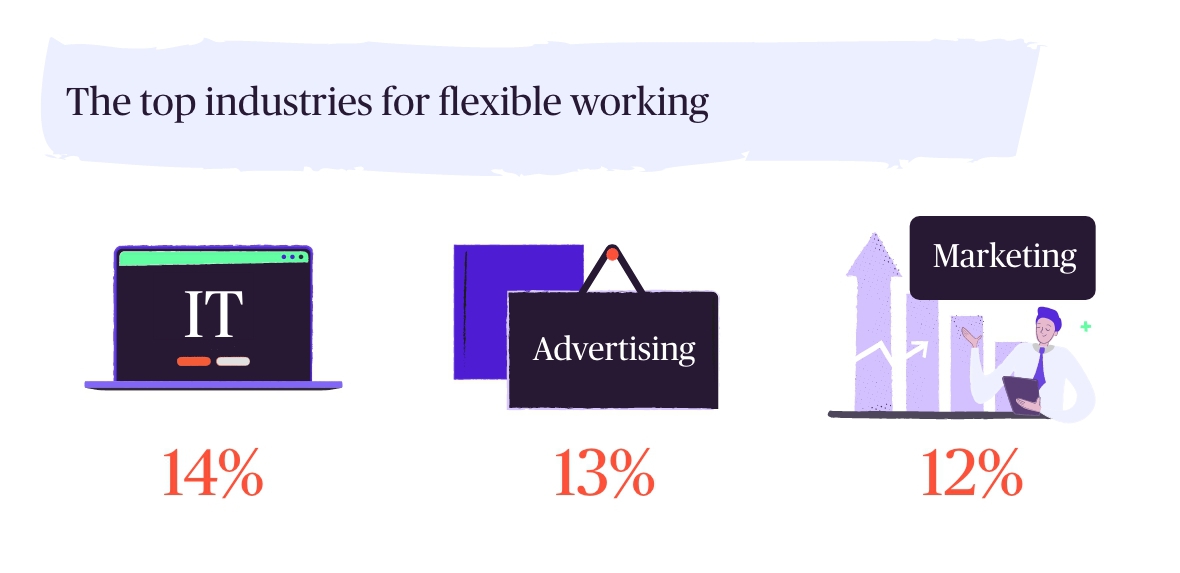
Meanwhile, 10% of law is practiced remotely, with attorneys given reasonable flexibility to work where they like – of course, it’s important to caveat this with the reality that some of this time may be spent travelling between clients or meetings. However, law doesn’t take top spot for flexibility in any major state across the US, only managing second in Michigan (14%) and North Carolina (14%).
Finally, according to our research, 9% of all business consultancy, HR, graphic design, and public relations in the US is conducted remotely, earning these four industries a place among the most flexible sectors in America. New York City, in particular, values flexibility in HR (11%), PR (11%), and graphic design (9%), with each placing among the state’s top industries for remote working.
The worst US industries for flexible working
In contrast, looking at some of the worst industries in America for flexible working, none offer less scope to operate outside the office than recruitment (5%) and banking (5%) – despite one in four Americans (23%) believing flexible working improves communication and over two in five (44%) recognizing increased employee morale.
Despite banking being among the worst overall, though, industry professionals in Michigan (19%) enjoy four times the flexibility of the national average.
Meanwhile, the finance (6%) and accounting (6%) industries follow the trend set by banking, joined by sales (6%) and telecoms (6%) – despite much of the work within the latter two sectors typically taking place over the phone. Finally, project management is also among the worst, allowing just 8% flexible working on average.
What are the best entry level careers for flexible working?
We’ve had a look at the best industries across the US for remote working, but what entry level careers should graduates be avoiding if lack of flexibility is a deal breaker?
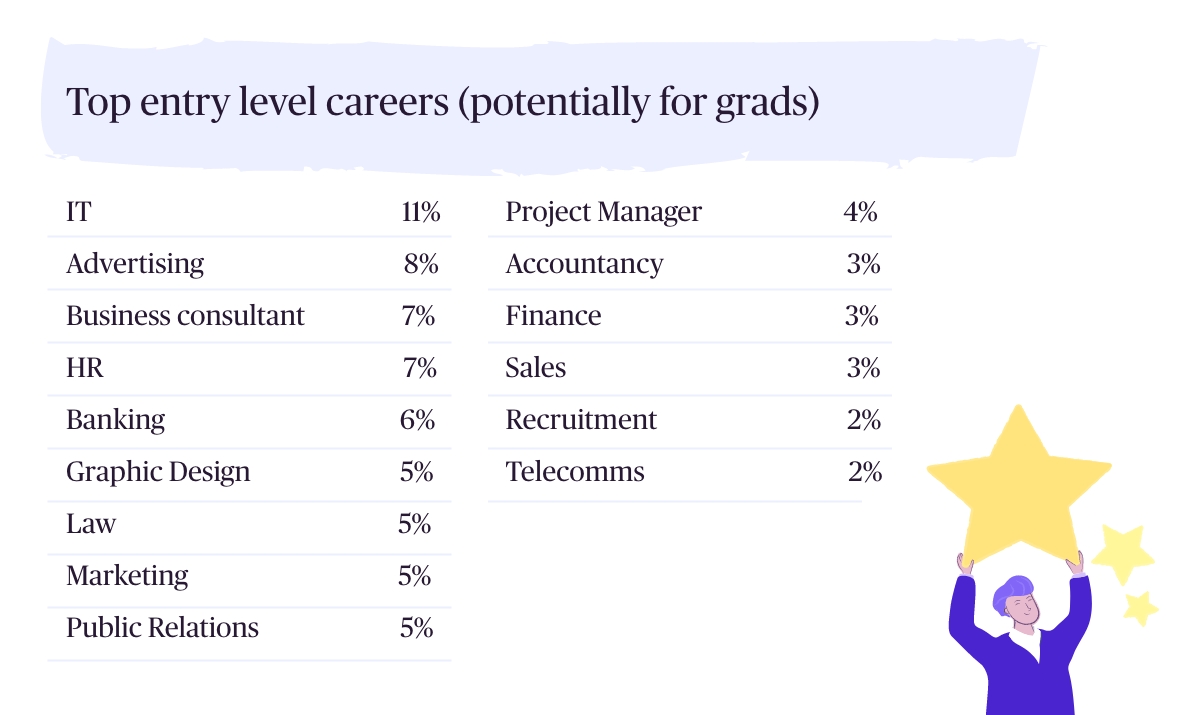
Once again, IT (11%) and advertising (8%) come out on top for flexible working, but it’s worth noting that business consultancy (7%) and HR (7%) are bumped up for graduates; and banking (6%) earns a top five spot despite placing among the worst overall.
Echoing overall trends, at the other end of the scale, telecoms (2%), recruitment (2%), and sales (3%) are also poor-performing roles for graduates when it comes to flexibility, joined by finance (3%) and accountancy (3%).
As the workplace continues to evolve, it’ll be interesting to see how businesses adapt to new challenges. One way to make sure your company is always connected is with the help of a dedicated virtual receptionist who will become a remote extension of your team. For even more expert insight, check out the latest from us over on our blog.














